#ancient epics
Explore tagged Tumblr posts
Text
"Homer wrote the first fanfiction about Greek Gods" Bestie do you even know how epics come into being in the first place? ToT
#majority of the epics were compilations of old stories that were either passed down in small written bits or orally#homeric epics#epics#homer#the iliad#the odyssey#greek mythology#mythologies#mythology#mythological epics#ancient epics
29 notes
·
View notes
Text
The Aristeia of Klytaimestra
Hey everyone! This is outside of my normal posts, but I have an assignment for a class that I want to share. For part of my final for my class on Ancient Epics, I wrote a short work of fiction based of a minor character. I chose Klytaimestra (Greek spelling). Anyways, I thought it turned to pretty good and wanted to share with more people than my professor. Hope you like it, too!
TW: blood, human sacrifice, childbirth, suicidal thoughts, suicidal actions, murder
WC: 1,335
She had not changed her dress yet. The dark splotches had dried, the color fading from screaming red to something darker. The stains seemed vulgar against the pale blue robes she had selected for the wedding. The robes she had thoughtfully chosen, never thinking of mistrusting the plans of her husband – her King. She had known happiness, watching the wedding party gather. She did not doubt that Agamemnon wanted to raise himself. He would not pass over the chance to have the great Achilles as a son. It brought her some comfort knowing that her grandchildren would have his blood, his legacy to call their own.
The white marble of the entrance to his palace was so similar to the altar where he killed her girl. That’s what Iphigeneia was. Just a girl. She was barely old enough to wed and he killed her. She stood there, too blinded by happiness at the thought of her daughter making a good match in marriage to see the glint of the dagger. She could not move quick enough in the pale blue robes to take the blow herself. Her fool husband had killed a deer, her fool sister was seduced, her fool kinsman had stood there – and for all their foolishness her girl had been slaughtered. In the end, her beloved daughter garnered no more honor than a common beast of the hills.
Klytaimestra did not recall being taken back to the ship. She did not recall if the seas were calm or if they raged. She did not recall the walk from the harbor to the palace. Her eyes found the vase placed on a painted table. Her mother had painted that vase. Klytaimestra’s mother had liked to paint. It drove the servants mad that Leda’s clothes were so often covered in paint. Her father did not care that his honored wife painted. If it made her happy, why not indulge her?
Leda painted that vase as part of her dowry. Not an object of great value to entice a suitor to become a husband, just something beautiful to take with her when she left their home. It told the story of how her parents married. It showed her brothers, always missing each other. It showed her sister, the honored Helen, being born. It showed Klytaimestra picking wildflowers. It was the story of the family she came from as she left to make a family of her own. Iphigeneia had asked about it once, and she had explained each image, just as her mother had in the hours before her wedding to Agamemnon. He had never asked about it. If he knew that her mother had painted it or that it told the story of her family, she did not know.
The rage overcame her in an instant. It was her family that drew the attention of the Gods, not her. Her mother caught the eye of almighty Zeus. It was Helen and Pollux who hailed from the blood of Zeus. Not her. She didn’t deserve this.
Before she could think, Klytaimestra lunged for the table with the vase showing her cursed family. The pieces of the vase scattered to every corner of the room as it shattered against the white marble floor.
A sharp piece of the clay found its way into her hand as she took to the tapestry hanging on the wall - weaved in honor of some wedding or another. She couldn’t remember such insignificant details as she destroyed the work, threads fraying in the wake of her clay dagger.
It didn’t matter. None of it did.
Nothing in his grand entrance was to survive, she decided. Nothing in his house. She was going to destroy everything and everyone that had ever borne witness to her life. Blinded by rage and by tears, she rampaged through the house, sending vases shattering and servants running.
Minutes or hours passed; she couldn’t tell. Exhausted none the less, she found her way to her mother’s wrecked vase. The shards bit into her knees and into her hands as she fell to them. Finally, Klytaimestra let herself wail.
Even the Gods turned away at the sound.
Later, she would be told that she shook the walls with her cries. That she sounded like a dying animal herself as she wept for her girl. But Klytaimestra did not remember any of that. She remembered looking down at her hands, seeing the blood pooling in her palms. She had bled for Iphigeneia before. On that long, cold night when she learned what pain could be. All of the body shredding pain replaced quickly with a love like no other – the love of a lonely woman bringing a perfect daughter into the world. And it was that baby she saw, both new and screaming, grown and lifeless being held in her arms. Agamemnon, too, had done the same thing both times Klytaimestra held their girl. He took one glance and turned away.
With the fragment was still in her hand, biting into her skin as she gripped it, she would destroy everything in his house. She looked at the piece, then looked to the belly that had swollen twice now, each time bringing a life into the world. She was in his house.
Wouldn’t it be fitting if that was how she died? Carving out the insides that grew his children?
Klytaimestra sobered with two words ringing in her head: not yet.
~ ~ ~
They will tell you that she took her husband’s own kinsman to bed for no reason than to whore. That she saw the opportunity to act, and like a senseless woman, took it – just like her mother and sister. They will never know that she loathed his touch and her body revolted most times when he finished with her.
They will tell you that she hated her own son. That in her desire for Aigisthos she ignored him, leaving him to be raised by the few men left at the palace to raise as his father would. They will not tell you that Orestes grew to resemble his father – in looks and temper. And that looking at him drove her to near madness.
They will tell you it was greed the drove them to act. Maybe that was the case for Aigisthos. That he lusted for all Agamemnon had in life – power, lands, mistresses. They will not tell you that Klytaimestra couldn’t have cared less if he coveted Agamemnon’s very own skin. He was simply a means to an end.
They will tell you that their lies were so prefect that no one – even the most faithful of servants could not see the plots being laid. The servants never noticed the hole in her heart where her love should be, nor the marks their king had left. Faithful indeed.
After ten years of raging, word finally came. Agamemnon and all his ships were setting sail for home. Ten years of planning his death, and nothing could go wrong. Klytaimestra didn’t plan on staying to see if the whole of the realm burned with his death. She did not know that Hades would let her soul be at peace after what she did. But winter had come, and perhaps his Goddess could be moved – knowing the rage of a mother without a daughter.
The trap is of no real consequence. He died. That’s all that mattered to Klytaimestra. Before she could lift the vial of bitter poison to her lips and see her darling Iphigeneia again, Orestes landed a coward’s killing blow. He took his sword to strike through her back to the place he once grew and out again. Mother and father, husband and wife. Together they lay dying, their blood flowing together on the white marble floor.
They will tell you that Klytaimestra’s final gaze fell upon the husband she killed.
What they will not tell you is that she died with a smile on her bloodless face.
#the iliad#the odyssey#achilles#agamemnon and menelaus#IIphigeneia#helen of sparta#Klytaimestra#ancient epics#female rage#he deserves it#she deserved better
6 notes
·
View notes
Text
"Unveiling the Mystique of Antiquity: A Journey Through 'The Myths and Legends of Ancient Greece and Rome' by E. M. Berens"

In the realm of classical mythology, E. M. Berens' "The Myths and Legends of Ancient Greece and Rome" stands as a venerable guide, beckoning readers into the enchanting tapestry of gods, heroes, and timeless tales. As I embarked on this literary odyssey, I found myself captivated by the author's adept storytelling and his ability to breathe life into the ancient narratives, making them accessible and engaging for a contemporary audience.
Berens' comprehensive exploration begins with the origins of the Greek and Roman pantheons, tracing the lineage of deities and the epic events that shaped their divine realms. The book then unfurls a rich tableau of myths, ranging from the birth of the cosmos to the heroic exploits of figures like Hercules, Perseus, and Odysseus. Each narrative is meticulously crafted, with Berens providing insightful commentary that delves into the symbolic and cultural significance of these tales.
What sets Berens' work apart is his knack for blending academic rigor with a storyteller's flair. He navigates the intricate genealogies and complex relationships of the gods with clarity, ensuring that readers, whether well-versed in classical mythology or newcomers to the subject, can easily follow the intricate narratives. The prose is eloquent, evoking the grandeur of ancient civilizations while maintaining a modern accessibility that makes the myths feel vibrant and relevant.
One of the standout features of the book is Berens' meticulous attention to detail. He not only recounts the well-known myths but also unearths lesser-known stories, providing a holistic view of the ancient mythological landscape. The inclusion of lesser-known tales adds depth to the reader's understanding, creating a nuanced portrayal of the diverse characters and themes that populate the classical mythos.
"The Myths and Legends of Ancient Greece and Rome" also serves as a valuable cultural resource, shedding light on the moral and philosophical underpinnings of these ancient societies. Berens explores how these myths were interwoven into the fabric of daily life, shaping religious practices, artistic expressions, and even political ideologies. This contextualization enriches the reader's appreciation for the enduring impact of classical mythology on Western culture.
While Berens' work is undoubtedly a comprehensive and illuminating resource, it is not without its limitations. The book, originally published in the late 19th century, reflects the perspectives and biases of its time. Some readers may find aspects of the text to be outdated or culturally insensitive. Additionally, the absence of in-depth analysis or critical engagement with the source material may leave scholars wanting more scholarly depth.
In conclusion, "The Myths and Legends of Ancient Greece and Rome" by E. M. Berens is a captivating journey through the timeless narratives of classical mythology. Berens' storytelling prowess, coupled with his dedication to presenting a comprehensive overview, makes this book a valuable companion for anyone seeking to explore the rich tapestry of ancient Greek and Roman myths. The author's ability to strike a balance between academic rigor and engaging storytelling ensures that this work remains an enduring classic in the realm of mythological literature.
E. M. Berens' "The Myths and Legends of Ancient Greece and Rome is available in Amazon in paperback 16.99$ and hardcover 23.99$ editions.
Number of pages: 422
Language: English
Rating: 9/10
Link of the book!
Review By: King's Cat
#Ancient Greek mythology#Roman mythology#Classical legends#Mythological pantheon#Gods and goddesses#Heroes and heroines#Mythical narratives#Epic tales#Greek and Roman deities#Mythological stories#Berens' mythology#Ancient epics#Mythical characters#Classical literature#E. M. Berens myths#Mythological retellings#Legendary adventures#Divine genealogies#Classical civilization#Mythological symbolism#Cultural significance#Moral themes#Philosophical concepts#Mythological interpretations#19th-century literature#Ancient cosmogony#Mythical creatures#Heroic exploits#Classical deities#Greek and Roman folklore
6 notes
·
View notes
Text
The Anti-Hero's Journey: From Ancient Epics to Modern Fantasy
Fantasy literature has long been known for its iconic heroes and valiant champions, but it is the rise of the anti-hero that has reshaped the genre’s landscape. Anti-heroes, flawed and morally ambiguous protagonists who defy conventional notions of heroism, have emerged as captivating figures who challenge traditional storytelling tropes. Today, we’ll trace the evolution of anti-heroes in…
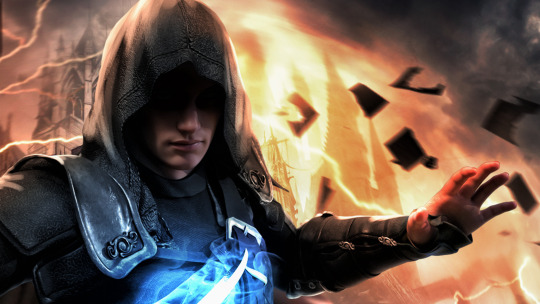
View On WordPress
#A Song of Ice and Fire#Achilles#Ancient Epics#Anti-Hero Appeal#Anti-Hero Characteristics#Anti-Heroes in Literature#Beowulf#Captain Ahab#Classic Literature#Crime and Punishment#Dune series#Elric of Melniboné#Elric of Melniboné series#Evolution of Anti-Heroes#fantasy literature#First Law Trilogy#Flawed Protagonists#Glokta#Heroes vs Anti-Heroes#Heroism Tropes#Impact of Anti-Heroes#Jaime Lannister#Literature Tropes#Logen Ninefingers#Moby-Dick#Modern Fantasy Literature#moral ambiguity#Paul Atreides#Psychology of Anti-Heroes#Raskolnikov
2 notes
·
View notes
Photo






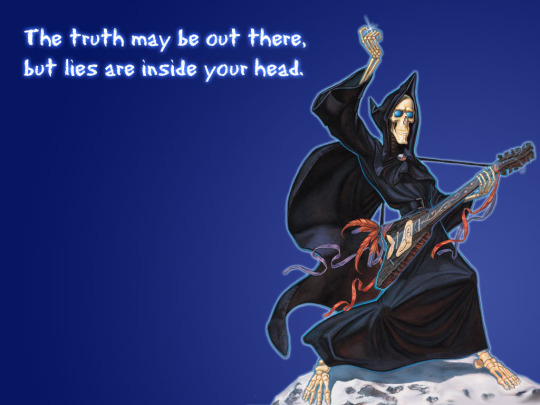

Do these fit that format?









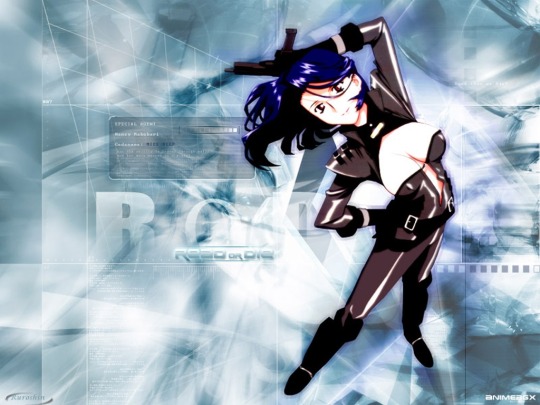
downloaded an old torrent of anime wallpapers even though i’m sure they’re all too small for my monitor at this point. i just desperately want this style to come back
2K notes
·
View notes
Text
Odysseus: *gently hands Athena baby Telemachus*
Athena: …you were PREGNANT AND YOU DIDNT TELL ME?!
Odysseus: what?- no-
Athena: DO YOU KNOW HOW DANGEROUS THAT IS?! I WAS TRAINING YOU!
Odysseus: no I wasn’t the one-
Athena: THAT POOR BOY WAS PROBABLY SO SQUISHED IN YOUR HELMET! LOOK AT HOW SMALL HE IS!!
#i hope you guys get it#athena#ancient greek#greek gods#greek mythology#odysseus#epic the musical#epic the wisdom saga#telemachus
19K notes
·
View notes
Text
Ramayana No. 16: The Birth of Creation: How Compassion and Sorrow Sparked the First Verse of the Ramayana
Inspired by Chapter 1.2 of the DeBroy Translation of the Ramayana We often think of creativity as a product of inspiration, but the creation of the first verse of the Ramayana reminds us that profound art can also emerge from sorrow and compassion. In this ancient tale, the sage Valmiki witnesses a cruel act—the senseless killing of a bird—and from his grief, he unintentionally composes a verse…
#ancient epics#artistic integrity#Compassion#creative process#creativity from sorrow#cultural heritage#Debroy translation#Dharma#emotional intelligence#ethical storytelling#first shloka#Hindu Philosophy#Indian culture#Indian epic#Indian mythology#inspiration for artists#moral compass#Ramayana#Ramayana lessons#Ramayana translation#Ramayana wisdom#spiritual lessons#Timeless Wisdom#Valmiki#Valmiki’s poetry#wisdom for modern life
0 notes
Text
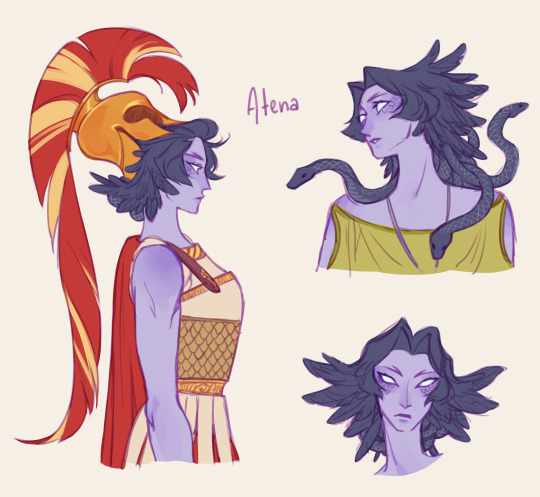

🦉 𝑻𝒉𝒆 𝒂𝒓𝒕 𝒐𝒇 𝒘𝒂𝒓 𝒅𝒐𝒆𝒔 𝒏𝒐𝒕 𝒔𝒂𝒗𝒆 𝒕𝒉𝒆 𝒔𝒐𝒍𝒅𝒊𝒆𝒓
Here is my Atena design!
I'm thinking of making her a little more muscular, but slender, as if she represented the agility of battles. She rarely smiles, like a strict teacher who wants the best for you and one way or another, she will always be remembered. Also her snakes re a refference to medusa, as they represent each other (as my friend told me and I love to see like that).
And! Apollo and Athena after 'God Games' in EPIC - the musical and she gets this lightning scar.
Zeus beat the crap out of her, but he would never kill Athena!! And I like that it suits him to be so strict with her, at least for me, she is the oldest daughter and the one who suffers the most pressure. What I dont like... its that in Epic, Zeus changed to look worse again!! ;w; really, he was way chill about releasing Odisseus and just wanted to not upset Poseidon in the process....
#athena#apollo#greek mythology#ancient greece#greek myth retellings#epic the musical#god games#epic the wisdom saga
9K notes
·
View notes
Text
Meteor Shower by igiulamam is a certified banger.
youtube
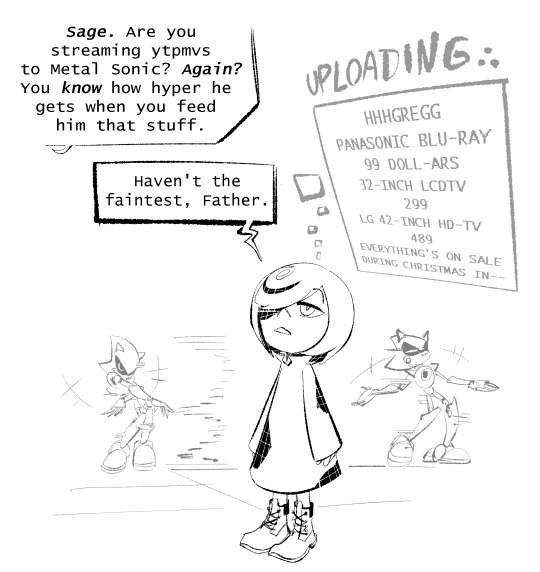
#YTP#the-hydroxian-artblog#Metal Sonic#Sage#Sonic the Hedgehog#YTPMV#METEOR SHOWER#The Transformers#igiulamam#Ancient Epics
6K notes
·
View notes
Text
Are they flirting or ...what are they even doing?🤨
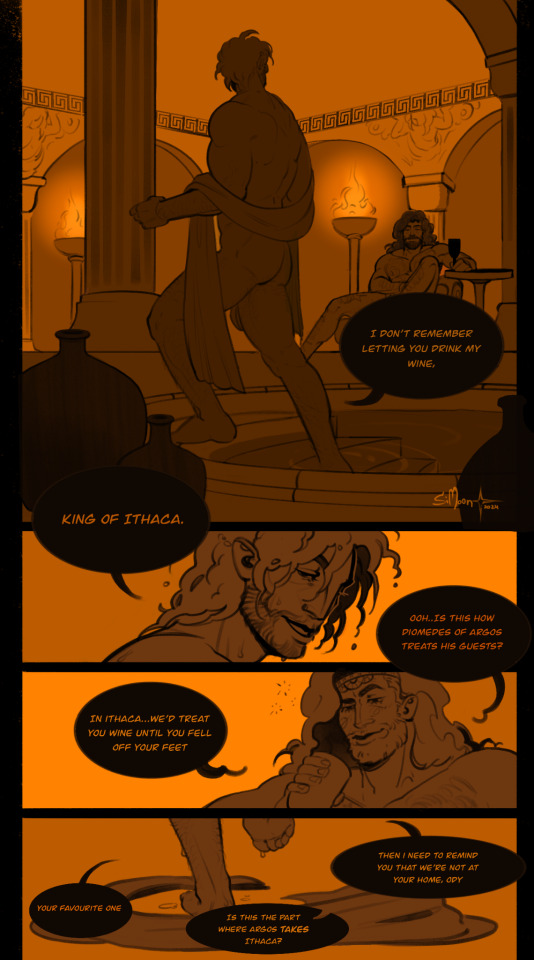
#seriously what the fuck#diomedes x odysseus#diomedes#diomedes of argos#odysseus#odysseus of ithaca#odydio#greek epic#the illiad#the odyssey#tagamemnon#ancient yaoi lmao
6K notes
·
View notes
Text

2 notes
·
View notes
Text
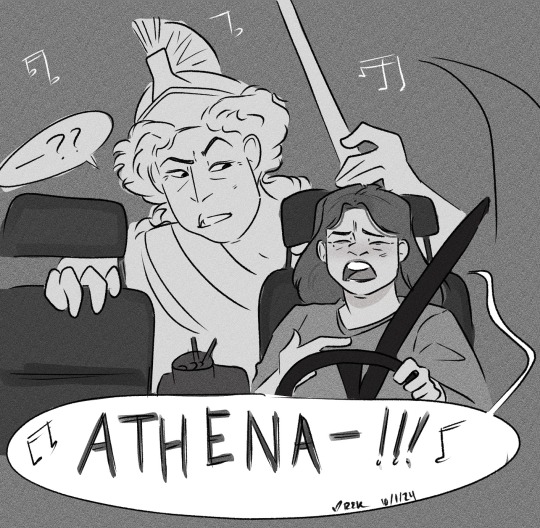
i've been BELTING out the Epic concept album in the car to and from work the past couple of weeks, esp. the bit where Odysseus cries out for Athena at the end of Love in Paradise, and I thought it would be funny if the goddess herself was like WHY is this person in rural NY state calling for me every day at 8:40am and after 5pm
#epic the wisdom saga#love in paradise#epic the musical#epic musical#epic musical fanart#fanart#athena#diary comic#comic#art#illustration#digital art#artists on tumblr#clip studio paint#csp#musical#i also think it's funny that every decade or so we revive the ancient greek myths and like#if the gods were out there they'd have to be like WHAT is happening WHY are people calling for us again lmao
5K notes
·
View notes
Text
Tangentially related
We (somewhat rightly) mock the 2000's era fansub translation notes for their otaku fixations and privileging of trivia over the media, but they should be understood as serving their purpose for a bit of a different era in the anime fandom. Take this classic:

Like, its so obvious, right? Just say "pervert", you don't need the note! Which is true, for like a 'normie' audience member who just wants to watch A TV Show - but no one watching, uh *quick google* "Kamikaze Kaitou Jeanne" in 1999 is that person. The audience is weebs, and for them the fact that show is Japanese is a huge selling point. They want it to feel as 'anime' as possible; and in the west language was one of the core signifiers of anime-ness. 2004 con-goers calling their friends "-kun" and throwing in "nani?" into conversations was the way this was done, and alongside that a lexicon of western anime fandom terminology was born. Seeing "ecchi" on the screen is, to this person, a better viewing experience - it enhances their connection to otaku identity the show is providing, and reinforces their shared cultural lexicon (Ecchi is now a term one 'expects' anime fans to know - a truth that translator notes like this simultaneously created and reflected).
But of course your audiences have different levels of otaku-dom, and so you can't just say 'ecchi' and call it a day - so for those who are only Level 2 on their anime journey, you give them a translation note. Most of the translation notes of the era are like this - terms the fansubber thought the audience might know well enough that they would understand it and want that pure Japanese cultural experience, but that not all of them would know, so you have to hedge. The Lucky Star one I posted is a great example of that:
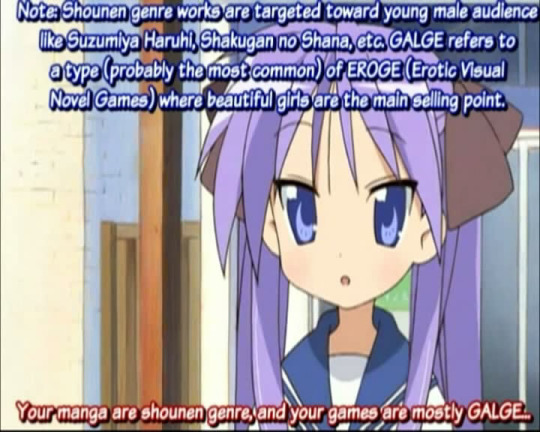
Its Lucky Star, the otaku-crown of anime! You desperately want the core text to preserve as much anime vocab as possible, to give off that feeling, but you can't assume everyone knows what a GALGE is - doing both is the only way to solve that dilemma.
This is often a good guideline when looking at old memetically bad fansubs by the way:

This isn't real, no fansub had this - it was a meme that was posted on a wiki forum in 2007. Which makes sense, right? "Plan" isn't a Japanese cultural or otaku term, so there is no reason not to translate it, it doesn't deepen the ~otaku connection~.
Which, I know, I'm explaining the joke right now, but over time I think many have grown to believe that this (and others like it) is a real fansub, and that these sort of arbitrary untranslations just peppered fansub works of the time? It happened, sure, but they would be equally mocked back then as missteps - or were jokes themselves. Some groups even had a reputation for inserting jokes into their works, imo Commie Subs was most notable for this; part of the competitive & casual environment of the time. But they weren't serious, they are not examples of "bad fansubs" in the same way.
This all faded for a bunch of reasons - primarily that the market for anime expanded dramatically. First, that lead to professionally released translations by centralized agencies that had universal standards for their subs and accountability to the original creators of the show. Second, the far larger audience is far less invested in anime-as-identity; they like it, but its not special the way its special when you are a bullied internet recluse in 2004. They just want to watch the show, and would find "caring" about translation nuances to be cringe. And since these centralized agencies release their product infinitely faster and more accessibly than fansubs ever did, their copies now dominate the space (including being the versions ripped to all illegal streaming sites), so fansubs died.
Though not totally - a lot of those fansub groups are still around! Commie Subs is still kicking for example. They either do the weird nuance stuff, or fansub unreleased-in-the-west old or niche anime, or even have pivoted to non-anime Japanese content that never gets international release. But they used to be the taste-makers of the community; now they are the fringe devotees in a culture that has moved beyond them. So fansubs remain something of a joke of the 90's and 2000's in the eyes of the anime culture of today, in a way that maybe they don't deserve.
11K notes
·
View notes
Text
My FINAL Artemis x Aeolus fa...(My EPIC designs-Y'all really made me do this...)
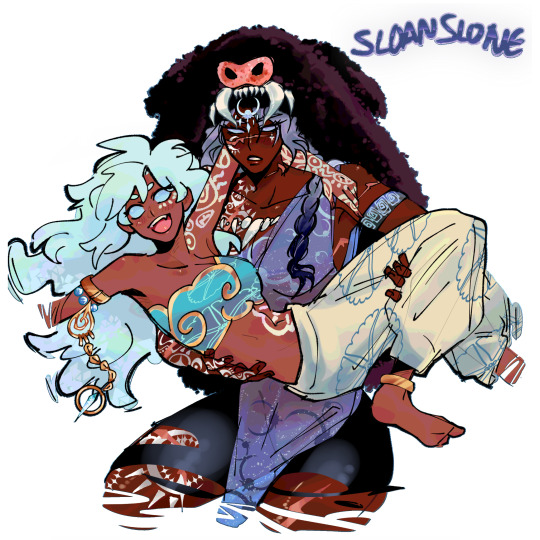
(you'll see Artemis's antlers if you get pumba off her head ig 😭, I just didn't wanna draw a dead dog or fox on her....)
#help this ship is SO random??!?!?#epic the musical fanart#etm#odyssey#aeolus#artemis#goddess of hunt#wind breaker#epic the musical#epic the ocean saga#sapphic#gay#i love drawing gorgeous women somebody help#greek goddess#artists on tumblr#ancient greek#greek gods#rarepair#ibispaintdrawing#i cant do this#somebody help me come and give me a sign#too many tags#beauttiful girls#ibispaint art#art#ancient greek mythology#ancient greece#slone asks#hunting goddess
3K notes
·
View notes
Text
"Unveiling the Mystique of Antiquity: A Journey Through 'The Myths and Legends of Ancient Greece and Rome' by E. M. Berens"
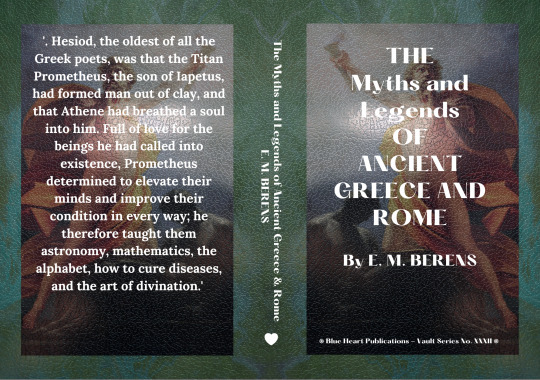
In the realm of classical mythology, E. M. Berens' "The Myths and Legends of Ancient Greece and Rome" stands as a venerable guide, beckoning readers into the enchanting tapestry of gods, heroes, and timeless tales. As I embarked on this literary odyssey, I found myself captivated by the author's adept storytelling and his ability to breathe life into the ancient narratives, making them accessible and engaging for a contemporary audience.
Berens' comprehensive exploration begins with the origins of the Greek and Roman pantheons, tracing the lineage of deities and the epic events that shaped their divine realms. The book then unfurls a rich tableau of myths, ranging from the birth of the cosmos to the heroic exploits of figures like Hercules, Perseus, and Odysseus. Each narrative is meticulously crafted, with Berens providing insightful commentary that delves into the symbolic and cultural significance of these tales.
What sets Berens' work apart is his knack for blending academic rigor with a storyteller's flair. He navigates the intricate genealogies and complex relationships of the gods with clarity, ensuring that readers, whether well-versed in classical mythology or newcomers to the subject, can easily follow the intricate narratives. The prose is eloquent, evoking the grandeur of ancient civilizations while maintaining a modern accessibility that makes the myths feel vibrant and relevant.
One of the standout features of the book is Berens' meticulous attention to detail. He not only recounts the well-known myths but also unearths lesser-known stories, providing a holistic view of the ancient mythological landscape. The inclusion of lesser-known tales adds depth to the reader's understanding, creating a nuanced portrayal of the diverse characters and themes that populate the classical mythos.
"The Myths and Legends of Ancient Greece and Rome" also serves as a valuable cultural resource, shedding light on the moral and philosophical underpinnings of these ancient societies. Berens explores how these myths were interwoven into the fabric of daily life, shaping religious practices, artistic expressions, and even political ideologies. This contextualization enriches the reader's appreciation for the enduring impact of classical mythology on Western culture.
While Berens' work is undoubtedly a comprehensive and illuminating resource, it is not without its limitations. The book, originally published in the late 19th century, reflects the perspectives and biases of its time. Some readers may find aspects of the text to be outdated or culturally insensitive. Additionally, the absence of in-depth analysis or critical engagement with the source material may leave scholars wanting more scholarly depth.
In conclusion, "The Myths and Legends of Ancient Greece and Rome" by E. M. Berens is a captivating journey through the timeless narratives of classical mythology. Berens' storytelling prowess, coupled with his dedication to presenting a comprehensive overview, makes this book a valuable companion for anyone seeking to explore the rich tapestry of ancient Greek and Roman myths. The author's ability to strike a balance between academic rigor and engaging storytelling ensures that this work remains an enduring classic in the realm of mythological literature.
E. M. Berens' "The Myths and Legends of Ancient Greece and Rome is available in Amazon in paperback 16.99$ and hardcover 23.99$ editions.
Number of pages: 422
Language: English
Rating: 9/10
Link of the book!
Review By: King's Cat
#Ancient Greek mythology#Roman mythology#Classical legends#Mythological pantheon#Gods and goddesses#Heroes and heroines#Mythical narratives#Epic tales#Greek and Roman deities#Mythological stories#Berens' mythology#Ancient epics#Mythical characters#Classical literature#E. M. Berens myths#Mythological retellings#Legendary adventures#Divine genealogies#Classical civilization#Mythological symbolism#Cultural significance#Moral themes#Philosophical concepts#Mythological interpretations#19th-century literature#Ancient cosmogony#Mythical creatures#Heroic exploits#Classical deities#Greek and Roman folklore
0 notes
